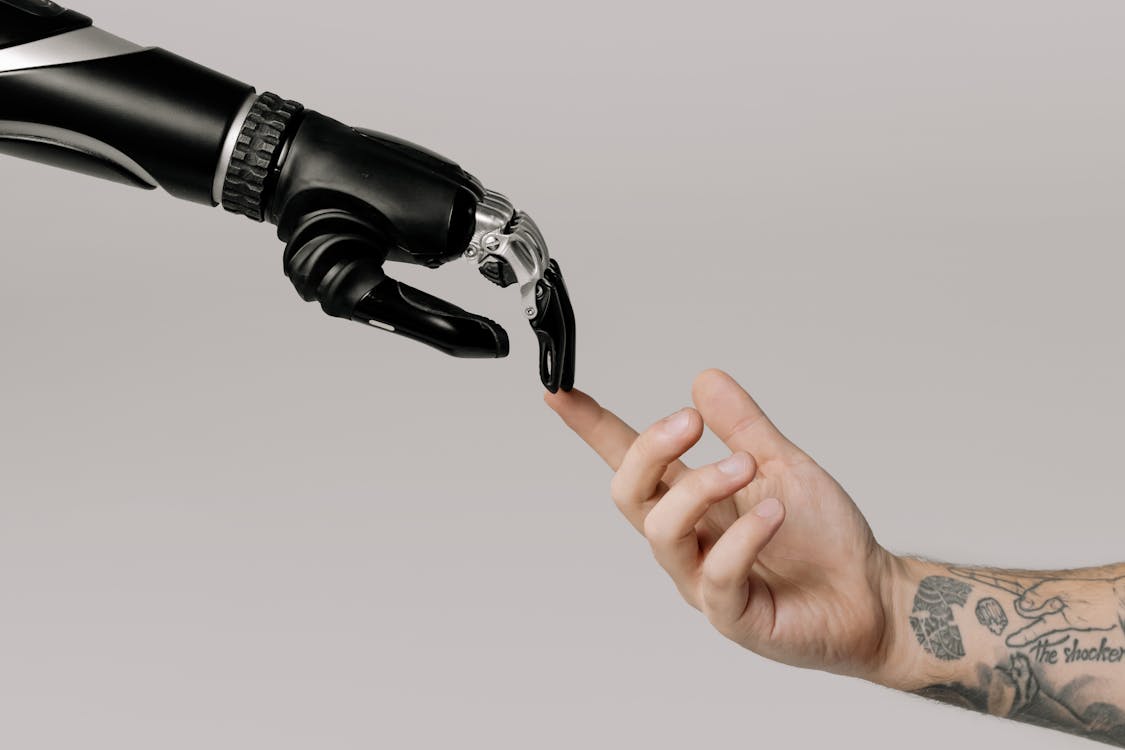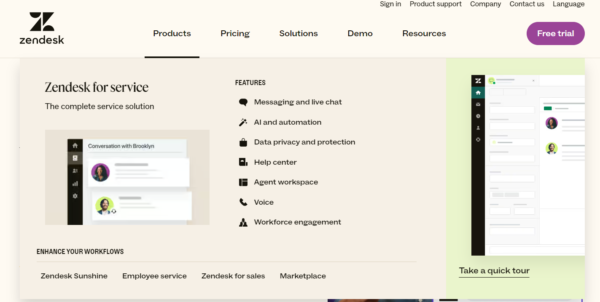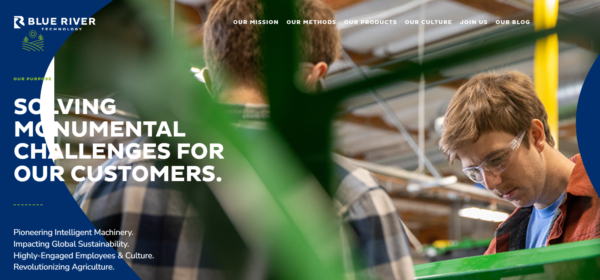The Future of Startups: How AI is Shaping the Way Entrepreneurs Do Business
Startups are the lifeblood of innovation. They often bring fresh perspectives, disruptive ideas, and the agility to respond quickly to market changes. However, the entrepreneurial journey is fraught with challenges, from resource constraints to intense competition. In the past decade, artificial intelligence (AI) has emerged as a transformative force that is revolutionizing the way startups operate, grow, and scale.
AI is no longer the domain of tech giants alone. Startups are increasingly integrating AI into their processes to enhance efficiency, gain competitive advantages, and unlock new growth opportunities. In this comprehensive exploration, we’ll delve into how AI is shaping the future of startups, the benefits it offers, the industries being transformed, and the potential challenges entrepreneurs may face in this AI-driven era.
1. Automating Repetitive Tasks for Enhanced Efficiency
One of the key benefits AI brings to startups is automation. In the early stages of a business, resources—both time and money—are often limited. Startups need to focus on growth, product development, and customer acquisition, but they are often bogged down by repetitive and time-consuming tasks.
AI-powered automation tools are designed to take over routine tasks such as data entry, customer support, scheduling, and even payroll processing. For example, AI-driven chatbots have become indispensable tools for startups in industries ranging from e-commerce to tech support. These chatbots can handle common customer queries, provide information, and even assist in transactions 24/7 without the need for human intervention.
By automating these tasks, startups can free up human resources to focus on high-value activities like strategic planning and product innovation. Entrepreneurs can also reduce operational costs, allowing them to scale their operations more efficiently.
Case Study: Zendesk and Automated Customer Support
Zendesk, a leading customer service platform, has integrated AI-driven chatbots to provide startups and small businesses with efficient customer support solutions. Their AI tools automatically categorize customer inquiries, suggest solutions, and even learn from previous interactions to improve future responses. As a result, startups using Zendesk have reported reduced response times, improved customer satisfaction, and lower operational costs.
2. Data-Driven Decision Making for Strategic Advantage
In today’s competitive landscape, startups that can make informed, data-driven decisions have a significant advantage over those that rely on intuition or limited data. AI has made it possible for even the smallest startups to access powerful analytics tools that can process vast amounts of data and uncover actionable insights.
AI-driven algorithms can analyze customer behavior, market trends, and financial data in real-time, helping startups make smarter decisions faster. Whether it’s identifying the most profitable customer segment, predicting future sales trends, or optimizing marketing spend, AI enables entrepreneurs to navigate complex markets with confidence.
The Role of Machine Learning in Predictive Analytics
Machine learning, a subset of AI, is particularly valuable for startups looking to predict future outcomes based on historical data. For example, e-commerce startups can use machine learning algorithms to predict which products will be popular during a particular season, allowing them to optimize inventory and marketing efforts.
Fintech startups, meanwhile, can leverage AI to analyze financial data and predict creditworthiness or detect fraudulent activities. By making data-driven decisions, startups can mitigate risks, seize new opportunities, and stay ahead of competitors.
Case Study: Blue River Technology and AI-Driven Agriculture
Blue River Technology, a startup in the agriculture sector, developed an AI-powered system that uses machine learning to identify weeds and selectively spray herbicides. This precision farming approach reduces chemical usage and lowers costs for farmers. By leveraging AI to analyze data from fields, the startup can optimize farming practices and increase crop yields. Blue River Technology’s success led to its acquisition by John Deere, a testament to the power of AI in data-driven decision making.
3. Personalizing Customer Experiences for Increased Engagement
Customer experience is at the heart of any successful business, and startups are increasingly turning to AI to deliver personalized, engaging experiences at scale. AI-powered tools can analyze vast amounts of customer data—from purchase history and browsing patterns to social media behavior—and create personalized recommendations and content.
Personalization goes beyond simple product recommendations. AI can tailor marketing messages, adjust website interfaces, and even determine optimal communication channels for individual customers. This level of personalization drives customer loyalty, increases engagement, and boosts conversion rates, all of which are crucial for startups in their growth phase.
AI in Marketing and Personalization
Marketing is one of the areas where AI is having the most significant impact. AI-driven tools can automate tasks such as email marketing, social media management, and content creation, while also providing personalized experiences for customers. Tools like HubSpot and Marketo offer startups powerful AI-based marketing automation platforms that segment audiences, optimize content delivery, and personalize outreach at scale.
Additionally, AI can provide real-time insights into customer behavior, enabling startups to adjust marketing campaigns on the fly to maximize effectiveness. With AI, even small startups can compete with larger players by delivering highly targeted, data-driven marketing campaigns.
Case Study: Netflix and Personalized Content
Netflix is often cited as a leader in AI-driven personalization, and its approach has been instrumental in driving its growth. While Netflix is now a massive company, its roots as a startup highlight the importance of personalization. The company’s recommendation engine, powered by AI, analyzes viewer preferences to suggest personalized content, resulting in higher user engagement and retention.
For startups in the content creation or streaming space, Netflix’s success is a model of how AI can be leveraged to deliver personalized customer experiences and drive growth.
4. Accelerating Product Development and Innovation
Innovation is the cornerstone of every successful startup, and AI is accelerating product development cycles in ways that were previously unimaginable. By using AI to analyze customer feedback, market trends, and competitor products, startups can identify gaps in the market and develop new products faster than ever before.
AI-powered tools like natural language processing (NLP) and computer vision are opening up new possibilities for product development. Startups can use NLP to build AI-powered voice assistants or chatbots, while computer vision enables applications in industries like healthcare, e-commerce, and autonomous vehicles.
Additionally, AI can be used to simulate product designs, test prototypes, and predict potential issues before a product even hits the market. This allows startups to iterate quickly and bring innovative solutions to market faster than their competitors.
AI in Product Testing and Feedback
Startups often face challenges when it comes to testing products on a large scale due to limited resources. AI-powered platforms like UserTesting and Feedback Loop enable startups to gather real-time feedback from users and customers, allowing for faster iterations and improvements.
By analyzing user feedback using AI-driven sentiment analysis tools, startups can identify common issues, gauge customer satisfaction, and make data-driven decisions on how to enhance their products.
Case Study: Rivian and AI in Electric Vehicle Development
Rivian, a startup in the electric vehicle (EV) industry, has leveraged AI to accelerate the development of its cutting-edge EV models. Using AI-powered simulation tools, Rivian can test vehicle performance in virtual environments, reducing the need for costly physical prototypes. This approach has allowed the company to innovate rapidly and bring its EVs to market faster than traditional automakers.
5. Enhancing Scalability and Cost Efficiency
Scaling a startup is no easy feat, especially when resources are limited. AI is helping startups scale efficiently by automating processes, improving operational efficiency, and reducing costs. AI-driven platforms enable startups to handle larger workloads, manage complex supply chains, and optimize business operations without the need for significant increases in staff or infrastructure.
Cloud computing platforms like Amazon Web Services (AWS) and Google Cloud offer AI-powered solutions that allow startups to scale their operations on demand. Startups can use AI to manage customer interactions, optimize pricing strategies, and streamline logistics, all of which contribute to scalability.
AI-Powered Virtual Assistants and Workforce Efficiency
AI-powered virtual assistants are another key tool for startups looking to scale their operations. Platforms like X.ai and Clara automate scheduling, meeting coordination, and administrative tasks, freeing up valuable time for entrepreneurs and their teams.
Startups can also leverage AI to create more efficient workflows, automate project management, and optimize resource allocation. By integrating AI into their operations, startups can grow their businesses while keeping costs under control.
Case Study: UiPath and AI in Robotic Process Automation (RPA)
UiPath, a leading startup in the robotic process automation (RPA) space, has transformed how businesses handle repetitive tasks. UiPath’s AI-powered RPA platform enables startups to automate complex processes across industries like finance, healthcare, and manufacturing. By automating these processes, startups can scale their operations efficiently, reduce costs, and focus on innovation.
6. Creating New Business Models and Opportunities
AI is not just transforming existing startups; it is also enabling entirely new business models and industries. The rise of AI-as-a-Service (AIaaS) platforms is allowing startups to access advanced AI capabilities without the need for in-house expertise. This democratization of AI has led to a wave of innovation in industries like healthcare, education, and financial services.
For example, AI-powered telemedicine platforms are revolutionizing healthcare by providing remote consultations, diagnosing conditions using AI algorithms, and even suggesting treatment plans. Similarly, AI-driven fintech startups are offering personalized financial services, such as robo-advisors that provide automated investment advice based on individual preferences.
AI in the Gig Economy and On-Demand Services
The gig economy, which relies on freelance and contract workers, has been significantly influenced by AI. Startups like Uber and Airbnb have leveraged AI to match supply and demand in real-time, optimize pricing strategies, and provide personalized experiences to users. As AI continues to evolve, we can expect to see even more innovative applications in the gig economy and other on-demand service industries.
Case Study: Lemonade and AI in Insurance
Lemonade, a startup in the insurance industry, uses AI to provide a seamless and transparent insurance experience. Lemonade’s AI-driven platform allows customers to purchase policies, file claims, and receive payouts in minutes, without the need for human agents. This has not only improved customer satisfaction but also reduced operational costs, making Lemonade one of the most disruptive players in the insurance space.
7. Addressing Ethical Concerns and Challenges
While AI offers numerous advantages to startups, it also presents challenges that entrepreneurs need to address. One of the primary concerns is data privacy and security. As startups collect and analyze vast amounts of data, ensuring that customer information is protected becomes critical.
Additionally, AI systems can perpetuate biases if not properly trained and monitored. Startups must take steps to ensure that their AI models are transparent, fair, and ethical. This includes using diverse datasets, regularly auditing AI systems, and implementing safeguards to prevent unintended consequences.
The Importance of Human Oversight in AI
Despite AI’s capabilities, human oversight remains essential. Entrepreneurs must strike a balance between automation and human intervention to ensure that AI-driven processes align with their business values and goals. This is particularly important in industries like healthcare, where AI decisions can have significant consequences.

Conclusion: The AI-Driven Future of Startups
The future of startups is undeniably intertwined with the evolution of artificial intelligence. AI is enabling startups to operate more efficiently, innovate faster, and scale more effectively than ever before. From automating tasks and personalizing customer experiences to creating new business models and addressing ethical challenges, AI is reshaping the entrepreneurial landscape.
Entrepreneurs who embrace AI early and integrate it into their business strategies are better positioned to thrive in this new era of innovation. The opportunities presented by AI are vast, and those who harness its power will be the ones to lead the next generation of successful startups.
As AI continues to evolve, it will unlock even more possibilities for startups, driving growth, innovation, and success across industries. The question is no longer whether AI will shape the future of startups, but how entrepreneurs will adapt and leverage this transformative technology to build the businesses of tomorrow.






